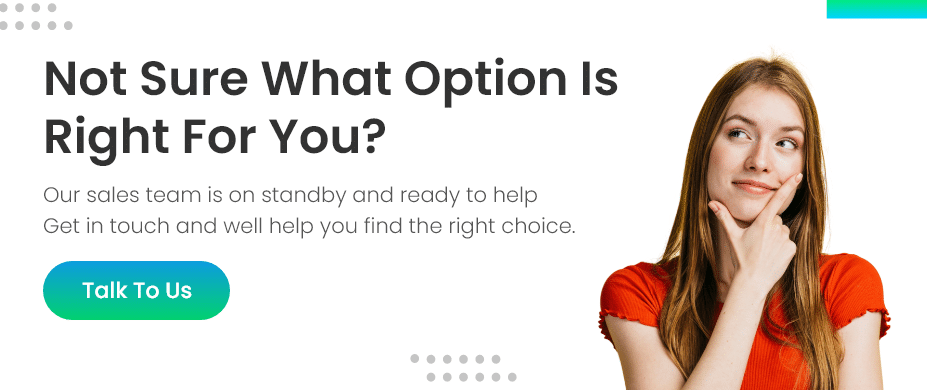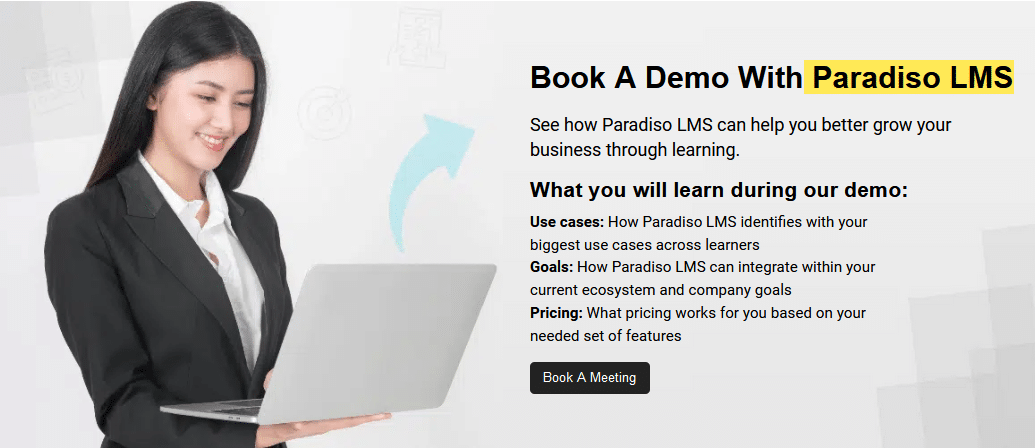Choosing the right Learning Management System (LMS) for compliance training is like navigating a maze. With increasingly complex and stringent compliance requirements, finding an LMS that meets these needs and enhances your training efforts can be daunting. An LMS isn’t just a tool; it’s a finely tuned element that can either streamline your processes or hinder your progress.
How To Choose an LMS For Compliance Training

In this guide, we’ll explore selecting an LMS that will simplify your compliance training and make it more effective and engaging. Ready to discover what it takes to elevate your compliance training program? Let’s begin.
What’s a Compliance Training LMS?
A Compliance Training LMS ensures that your organization meets specific regulatory requirements efficiently. Unlike general learning management systems, which focus on broader educational goals, this type of LMS zeroes in on the complexities of compliance training..
At its core, a Compliance Training LMS is a centralized hub for managing and delivering training programs that align with industry regulations. It offers a streamlined approach to updating training materials with the latest regulatory changes and ensures all employees complete the necessary courses and certifications.
This LMS integrates compliance tracking and reporting into its framework, making adhering to legal standards and demonstrating compliance during audits more straightforward. It’s about transforming regulatory obligations from a daunting task into a manageable, well-organized process, ensuring your organization stays on the right side of the law.
Insider Tips To Choose The Perfect Learning Management System
Download now to get insider tips on choosing the perfect Learning Management System!

10 Steps to Consider When Choosing an LMS for Your Organization
Selecting an LMS for compliance training requires a thoughtful approach, given its critical role in ensuring regulatory adherence. Here’s a detailed exploration of what you need to consider:
- Define Your Compliance Requirements: Describe your organization’s specific compliance needs. What regulations do you need to adhere to? Understanding these requirements will guide your LMS selection process, whether it’s OSHA standards or data privacy laws like GDPR.
- Evaluate User Experience: The LMS should be intuitive for both administrators and learners. A system that’s easy to navigate reduces training time and enhances engagement, making compliance training more effective.
- Integration Capabilities: Your LMS must integrate seamlessly with existing systems, such as HR and ERP software. This ensures that training data flows smoothly between platforms, helping maintain accurate records and streamline administrative tasks.
- Compliance Features: Look for features that cater to compliance needs, such as automated tracking, real-time reporting, and audit trails. These tools help you monitor progress and generate necessary reports efficiently.
- Content Flexibility: The LMS should support various content formats—interactive modules, videos, quizzes, and more. This flexibility ensures that your training materials can be presented in a way that best suits different learning styles.
- Scalability: As your organization grows, your LMS should be able to scale accordingly. It should handle increasing numbers of users and evolving compliance requirements without compromising performance.
- Vendor Support: Strong vendor support is crucial. Ensure the LMS provider offers comprehensive support, including troubleshooting, updates, and training. This will help you address any issues swiftly and keep your system running smoothly.
- Reporting and Analytics: Advanced reporting capabilities are essential for tracking compliance progress and preparing for audits. Your LMS should provide detailed analytics to evaluate training effectiveness and identify areas for improvement.
- Security Measures: Compliance training often involves sensitive information. Your LMS should have robust security features, such as data encryption and secure access controls, to protect this information and ensure compliance with data protection regulations.
- Cost vs. Value: While finding a cost-effective solution is important, don’t compromise on essential features. Compare different LMS options to ensure you’re getting the best value for your investment, balancing cost with the features and support you need.
The Importance of Vendor Support in Compliance Training
When dealing with compliance training, the stakes are high failure to adhere to regulations can result in serious legal and financial repercussions. Therefore, the quality of support provided by your LMS vendor can significantly influence the success of your compliance efforts. Here’s why and how this aspect can affect your training outcomes:
Expertise in Regulatory Updates
Compliance regulations are frequently updated; staying ahead of these changes is required to maintain adherence. A proactive vendor offers insights and timely updates about new rules and how they affect your training needs. This expertise ensures that your LMS evolves with regulatory changes, allowing you to keep your training content current without the need for constant manual updates.
Custom Solutions for Unique Compliance Challenges
Every organization has its unique compliance challenges based on industry, geography, and specific regulations. Vendor support goes beyond standard solutions by providing customized support tailored to address these unique challenges. This can include developing bespoke features or integrations crucial for your compliance needs and ensuring the LMS fully aligns with your regulatory requirements.
Rapid Issue Resolution
Any downtime or issues with the LMS in compliance training can disrupt training and hinder compliance efforts. Vendors that offer rapid response and resolution to technical problems ensure minimal disruption. This means fewer interruptions in your training programs and a more seamless user experience, necessary for maintaining compliance schedules and training effectiveness.
Integration with Compliance Tools
Effective vendor support includes integrating the LMS with other compliance-related tools and systems. This could involve connecting with regulatory compliance software, audit management systems, or industry-specific platforms. Such integration ensures data flows seamlessly between systems, improving accuracy and reducing administrative burdens.
Training and Resources
Comprehensive support should include extensive training for your team on using the LMS effectively. This training often covers the basics and advanced compliance features, such as setting up automated alerts for compliance deadlines or generating detailed audit reports. Well-trained staff can leverage the LMS more effectively, making the compliance training program more robust and efficient.
Consultative Support
Beyond technical assistance, a supportive vendor acts as a consultant, offering strategic advice on best practices for compliance training. This can include guidance on designing effective training programs, optimizing content delivery, and leveraging the LMS’s features to enhance compliance outcomes. This consultative approach helps you make the most of the LMS and adapt it to evolving compliance requirements.
Feedback Loop for Continuous Improvement
A vendor that actively seeks feedback and works with you to implement improvements ensures that the LMS remains relevant and effective. This feedback loop helps address any emerging issues or gaps in the system, continuously refining the LMS to meet your compliance training needs better. .
Deliver Your Compliance Training with Paradiso LMS
Paradiso LMS transforms compliance training from a challenging task into a streamlined, efficient process, allowing your organization to meet its regulatory obligations confidently and efficiently. Unlike generic LMS platforms, which offer a comprehensive suite of tools that streamline compliance training, from automated tracking and reporting to certification management. What’s more, its user-friendly interface ensures that your training programs meet regulatory requirements and enhance employee engagement and effectiveness.
Paradiso LMS integrates effortlessly with your existing systems, ensuring a smooth flow of data and simplifying administrative tasks. Its flexible content delivery options cater to various learning styles, allowing you to create engaging and interactive training experiences that resonate with your employees.
What sets Paradiso LMS apart from other LMS available in the market is that you’re not just investing in a compliance training tool; you’re partnering with a provider dedicated to supporting your organization’s compliance goals and ensuring that your training programs are effective, up-to-date, and compliant with the latest regulations.













